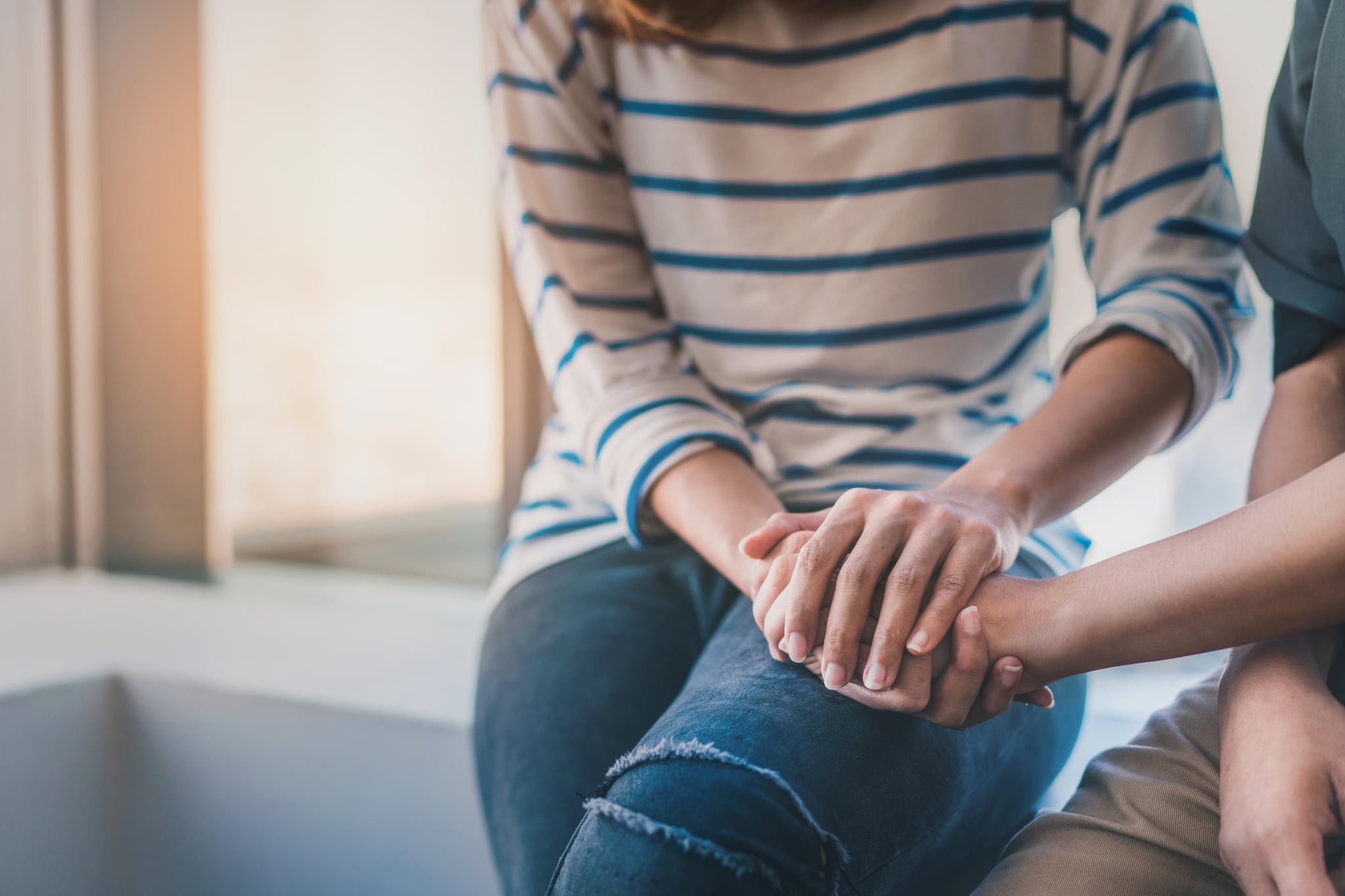With diet culture constantly telling us that you have to look a certain way to be considered “worthy,” it’s sadly not uncommon for people to get caught up in fad diets, fall into disordered eating, or even develop a full-fledged eating disorder. In fact, it’s estimated that nearly 29 million Americans will have an eating disorder in their lifetime. Worried that someone you love is among them? POPSUGAR asked experts how to spot the warning signs, and what you can do to help.
Signs That a Loved One May Have an Eating Disorder
First, it’s important to know that anyone can have an eating disorder, regardless of their identity. Marginalized groups are often at higher risk for eating disorders, despite the fact that these illnesses are often portrayed in the media as affecting mostly thin, white, cisgender women.
Kasi Patterson, PhD, a licensed clinical psychologist, explained that eating disorders often start as a desire to eat healthfully, which becomes an obsession when someone begins experiencing unwanted thoughts and engaging in compulsive behaviors. “The compulsive behaviors can negatively impact the individual’s routine and cause problems across environments: work, school, and within relationships with friends and loved ones,” Dr. Patterson told POPSUGAR. For example, you might notice that a friend has started turning down invitations to go out to dinner, or that a family member is spending hours in the gym when they would typically be working, studying, or hanging out with friends.
Sometimes the signs are more obvious. Dr. Patterson explained that you may notice a friend or loved one skipping meals, cutting their food into tiny pieces, eating in secret, or purging after dinner. Some people may also show physical signs of an eating disorder, such as weight loss, teeth discoloration, or dry skin. But more often than not, compulsive behaviors take place behind closed doors, and you may only notice changes in how a person acts or talks about food and their body.
“Signs to look out for might include a person constantly comparing themselves and their appearances to others; making frequent, negative comments about their body shape and appearance; frequently discussing and using unhealthy weight loss strategies like fad diets; avoiding social activities or withdrawal from family or friends; or increased anxiety, depression, irritability or guilt,” said Toya Roberson-Moore, MD, a child, adolescent, and adult psychiatrist at Eating Recovery Center.
Dr. Roberson-Moore noted that the distinction is when someone judges their value based only on their body size and shape. In other words, they’re so focused on how they look that they can’t see themselves as multifaceted individuals, who have so much more to offer the world.
If you notice these symptoms in a friend or loved one, approach them from a place of compassion. Ask how you can best support them right now, and offer to help them research treatment options. The National Eating Disorder Association (NEDA) has resources available, including a 24/7 helpline, which you can reach by calling 1-800-931-2237 or texting “NEDA” to 741741.
